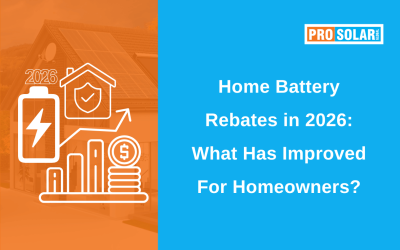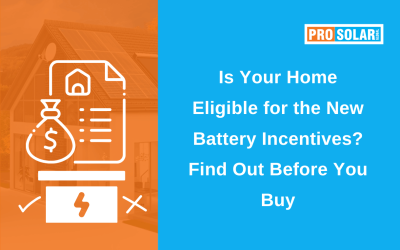One of the most common questions among homeowners and businesses considering solar energy is whether solar panels lose efficiency over time. This concern is understandable, as investing in solar panels is a long-term commitment, and it’s essential to know how well they will perform in the future. In this blog post, we will address how solar panels degrade over time, how much efficiency they lose, and what factors contribute to this process. Our goal is to provide you with clear, reliable information so that you can make an informed decision about your solar investment.
But first, let’s take a quick look at what solar panel efficiency means.
What is Solar Panel Efficiency?
Solar panel efficiency refers to how effectively a solar panel converts sunlight into usable electricity. The higher the efficiency, the more power a solar panel can generate from a given amount of sunlight. This factor is crucial when determining the energy production potential of your solar system, especially in areas with limited space for solar panels.
Do Solar Panels Lose Efficiency Over Time?
Yes, solar panels do lose efficiency over time, but the rate at which this happens is minimal. The primary cause of efficiency loss in solar panels is due to a natural process known as solar panel degradation. As solar panels age, the materials used in their construction slowly break down, resulting in a reduction in their ability to produce power.
However, it’s important to note that solar panel degradation is gradual and not something to be concerned about in the short term. In fact, solar panels typically come with warranties that guarantee a certain level of performance for 25 to 30 years or more.
How Much Efficiency Do Solar Panels Lose?
The rate of efficiency loss varies depending on several factors such as the quality of the panels, environmental conditions, and maintenance. On average, solar panels lose around 0.5% to 1% of their efficiency each year. Over the course of 25 to 30 years, this means that solar panels will still retain around 80% to 90% of their original efficiency.
To provide more context:
- A high – quality solar panel with minimal degradation might only lose 0.3% of its efficiency each year.
- A lower – quality panel or one exposed to harsher environmental conditions (such as extreme heat or heavy snowfall) might experience a 1% loss per year.
Why Do Solar Panels Lose Efficiency?
There are several factors that contribute to the degradation of solar panels. Understanding these can help you take steps to extend the life of your system:
1. Temperature
Solar panels work best in cooler conditions. Excessive heat can cause the materials in the panel to break down faster. For example, in Australia’s hot climate, solar panels might degrade at a slightly faster rate, especially if they are installed in areas with high temperatures year-round.
2. UV Exposure
Solar panels are constantly exposed to the sun’s ultraviolet (UV) rays. Over time, UV radiation can cause the materials in the panels, particularly the protective layers, to degrade. This leads to a decrease in overall efficiency. However, high-quality panels are designed with UV-resistant materials that slow this process down.
3. Humidity and Moisture
Water can penetrate the solar panel’s protective layers if not sealed properly, leading to corrosion and performance loss. Solar panels are designed to be weather-resistant, but exposure to extreme moisture over extended periods can still cause degradation.
4. Dirt and Debris
Dust, dirt, and leaves that accumulate on the surface of solar panels can block sunlight from reaching the photovoltaic cells, effectively reducing their efficiency. Regular cleaning and maintenance can help mitigate this issue, ensuring that your panels operate at peak performance.
5. Manufacturing Quality
The quality of the materials and the manufacturing process used in solar panels significantly affects their degradation rate. High-end solar panels, such as those from well-established brands like Prosolar Global, are built using advanced technology and high-quality materials that have a slower degradation rate.
Can You Prevent Solar Panel Efficiency Loss?
While some level of degradation is inevitable, there are several steps you can take to minimize the rate of efficiency loss and maximize the lifespan of your solar panels:
- Choose high-quality panels: Investing in premium solar panels that come with excellent warranties (such as those offered by Prosolar Global) can reduce the rate of efficiency loss over time.
- Regular maintenance: Keep your panels clean and free from debris, and schedule regular professional inspections to ensure that everything is working correctly.
- Proper installation: Ensuring that your solar panels are installed by certified professionals in an optimal location can reduce exposure to harmful conditions like excessive heat and humidity.
- Monitor system performance: Keep an eye on your system’s output with monitoring tools, so you can detect any sudden drops in efficiency early and address any issues promptly.
What is the Expected Lifespan of Solar Panels?
Most solar panels are designed to last between 25 and 30 years, though some can continue to generate power beyond this period at a slightly reduced efficiency. By the time a solar panel reaches the end of its lifespan, it may still be producing power at 80% or more of its original capacity.
Conclusion
Solar panels do lose efficiency over time, but the loss is typically slow and manageable. With proper maintenance and care, your solar panels can continue to provide clean, renewable energy for decades. If you’re investing in solar power in Australia, choosing high-quality panels like those offered by Prosolar Global can help you minimize degradation and ensure your system operates at peak performance for years to come.
Talk to our solar expert by calling us on 1300 181 191 for more information about how you can benefit from solar energy and the best options for your home or business.




